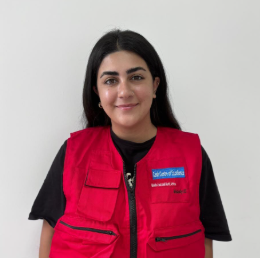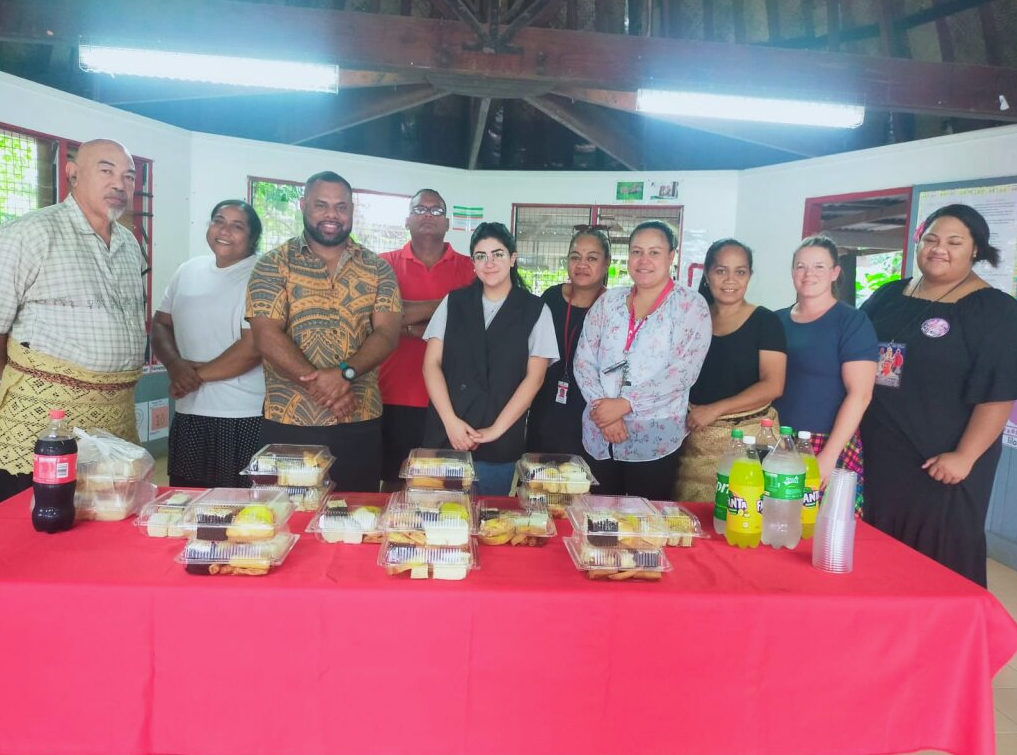September 13, 2025
2024 Alumni CPDP Blog: Reem Jawhari’s story
The continuation of this blog series will focus on the highlights from the recent Alumni of the 2024 Cash Practitioner Development Programme, allowing practitioners to share what they have learnt and experienced during their Cash School learning deployments.
The Cash Practitioner Development Programme aims to expand the ready pool of cash experts available to deliver humanitarian cash assistance, and to strengthen the community of qualified practitioners with up-to-date skills in all areas of cash assistance. Cash deployments are a key element of participants learning schedules, these deployments aim to enhance skills and confidence in implementing cash based assistance. Some deployments are run in partnership with NORCAP, with practitioners accessing deployment opportunities from a range of humanitarian agencies.
Meet Reem Jawhari from Our 2024 Cash Practitioner Development Programme!
My name is Reem Jawhari, a humanitarian professional specialising in Cash and Voucher Assistance (CVA) programming, with experience across the MENA region and in international deployments. I currently serve as the MENA Cash Centre of Excellence Technical Focal with the IFRC hosted by the Lebanese Red Cross, supporting National Societies in enhancing their CVA preparedness and response capacities through assessments, peer-to-peer exchanges, mentoring programs, webinars, and more.
Previously, I worked as an Economic Security Officer with the Lebanese Red Cross, coordinating large-scale multipurpose cash interventions in response to the Beirut Blast. As a long-standing LRC volunteer, I have seen first-hand how CVA has become a key response mechanism in the region, offering an efficient and transparent way to assist vulnerable communities while preserving dignity and independence.
I hold a bachelor’s degree in public health and development sciences, a Humanitarian Leadership Diploma, and the British Red Cross Cash Practitioner Development Program certification, along with several specialised CVA trainings.

What was your experience with cash prior to undertaking the CPDP training program?
Before the CPDP, I had already been engaged with cash and voucher assistance at different levels in my National Society, from supporting distributions in the field to working on monitoring, FSP coordination, and preparedness planning.
However, during the CPDP my knowledge was largely shaped by practice, with exposure to global standards and structured learning on cash operations as well as learning from Cash practitioners who have a lot of knowledge and experience in the filed globally.
What motivated you to pursue the CPDP program and expand your knowledge in cash operations?
I wanted to strengthen my technical expertise and gain a more systematic understanding of CVA. For me, CPDP was an opportunity to learn from experts, exchange experiences with peers from across the Movement, and translate that knowledge into stronger, more impactful programming in my own context.
Where did you go during your deployment phase?
During my deployment, I had the chance to work closely Tonga Red Cross Society.
The journey of Getting introduced to the Tonga Red Cross Society, which is on the other side of the word was very interesting since it’s a completely different context that I never imagined myself working in.
I supported the National society in Cash preparedness through the self-assessment, Job description development, SOPs.
This was a valuable hands-on experience that brought the theory of Cash Preparedness into real operational practice.

Can you share a particularly memorable or rewarding experience from your time in the CPDP program?
One of the most rewarding moments was engaging directly with communities during my deployment and seeing how cash support translated into dignity, choice, and empowerment. It reminded me that beyond the systems and processes, CVA is about people — mothers, fathers, and children making decisions that matter most for their lives.
What advice would you offer to someone just beginning the CPDP program?
Be open and curious.
Take every chance to ask questions, learn from colleagues and your Mentors, and connect with your peers.
Also, don’t forget that the deployment is where everything comes together.
Approach it as both a challenge and an opportunity that will give you lifetime experience both on a personal and on a CVA skill-based Level.
How do you feel your career has progressed since completing the program?
Completing CPDP gave me both confidence and credibility.
It expanded my technical skills in CVA and strengthened my leadership and coordination capacity.
Since then, I’ve taken on greater responsibilities in program management and CVA preparedness, and I feel better equipped to advocate for cash.
What trends or developments do you anticipate in the future of cash?
I see cash becoming even more integrated across sectors — not as a stand-alone intervention but as a tool to achieve outcomes in health, WASH, shelter, and beyond. Digital payments will also play a larger role, requiring us to balance efficiency with inclusion and data protection.
Finally, preparedness and localization will be critical — ensuring that National Societies have the systems and partnerships in place to deliver cash at scale when crisis hit.
